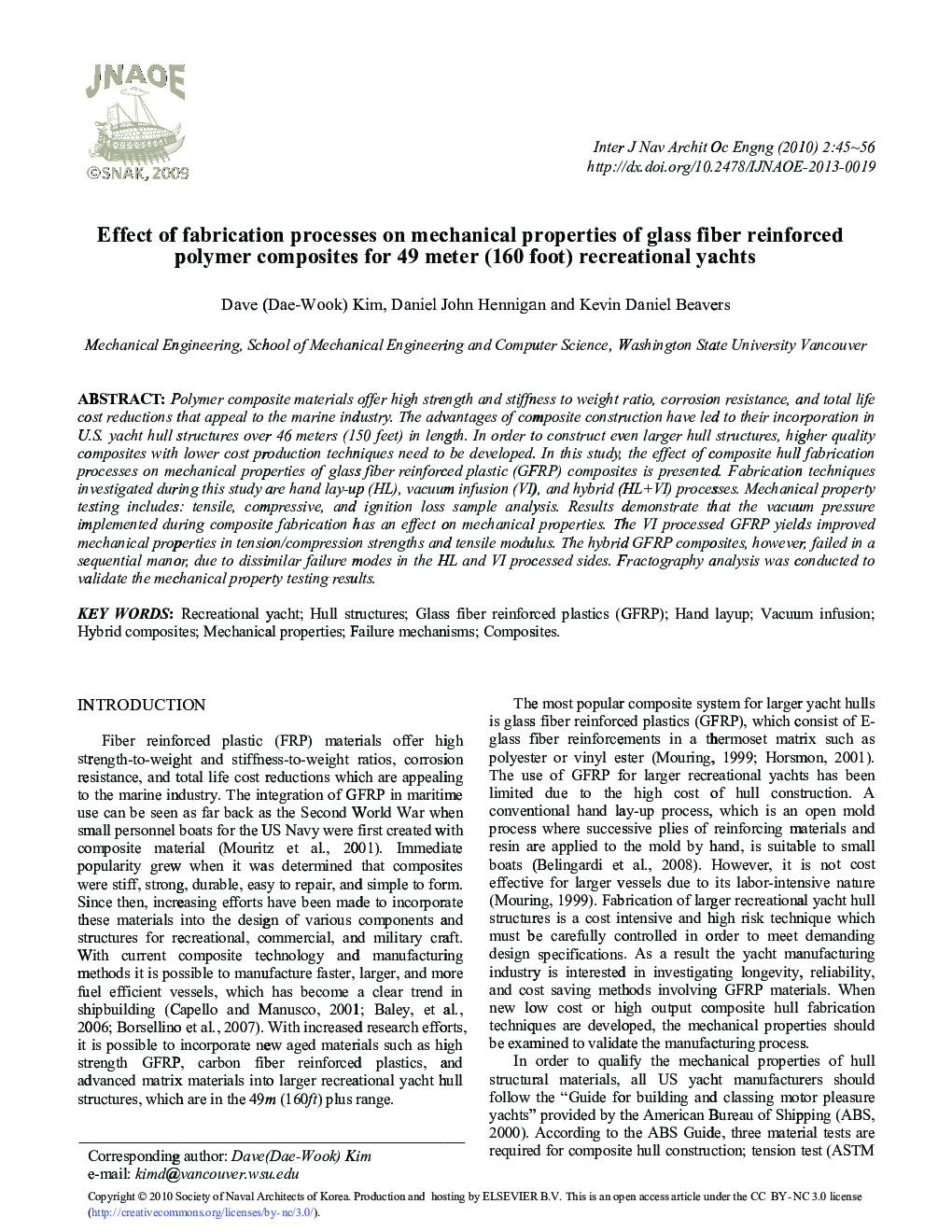| Article ID | Journal | Published Year | Pages | File Type |
|---|---|---|---|---|
| 4451925 | International Journal of Naval Architecture and Ocean Engineering | 2010 | 12 Pages |
ABSTRACTPolymer composite materials offer high strength and stiffness to weight ratio, corrosion resistance, and total life cost reductions that appeal to the marine industry. The advantages of composite construction have led to their incorporation in U.S. yacht hull structures over 46 meters (150 feet) in length. In order to construct even larger hull structures, higher quality composites with lower cost production techniques need to be developed. In this study, the effect of composite hull fabrication processes on mechanical properties of glass fiber reinforced plastic (GFRP) composites is presented. Fabrication techniques investigated during this study are hand lay-up (HL), vacuum infusion (VI), and hybrid (HL + VI) processes. Mechanical property testing includes: tensile, compressive, and ignition loss sample analysis. Results demonstrate that the vacuum pressure implemented during composite fabrication has an effect on mechanical properties. The VI processed GFRP yields improved mechanical properties in tension/compression strengths and tensile modulus. The hybrid GFRP composites, however, failed in a sequential manor, due to dissimilar failure modes in the HL and VI processed sides. Fractography analysis was conducted to validate the mechanical property testing results.
